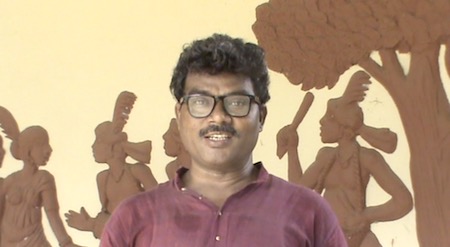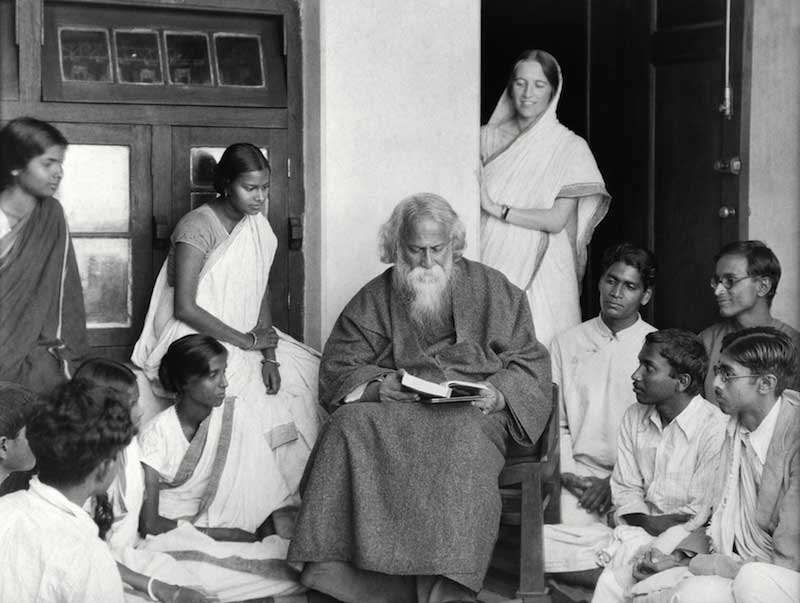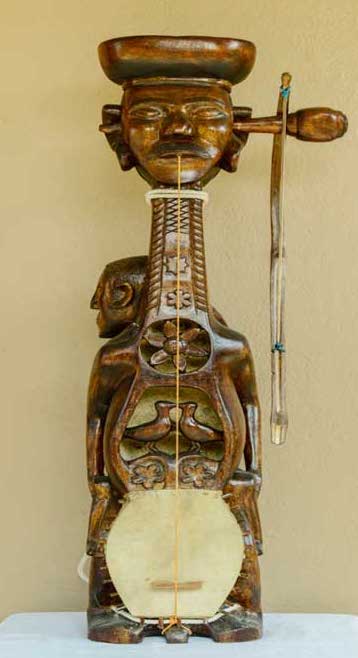
Rabindranath Tagore’s visit to the Netherlands in September 1920
Paradiso Amsterdam, 25 September 2020
Listen to the audio version of his address | Video link >>
Rendition of Tagore’s lyrics by teachers serving the
RSV School & Museum of Santal Culture (Ghosaldanga Village)
Read his address (PDF) >>
Rabindranath Tagore’s idea of education not only revitalized our initiative of village work but also strengthened our belief that the positive cultural values of Santal life can play an important role in sustainable development of our society even in the modern world.
Dr. Boro Baski in
“The inspiration of our village development work”
Dr. Boro Baski works for the community-based organisation Ghosaldanga Adibasi Seva Sangha in West Bengal. The NGO is supported by the German NGO Freundeskreis Ghosaldanga und Bishnubati. He was the first person from his village to go to college as well as the first to earn a PhD (in social work) at Viswa-Bharati. This university was founded by Rabindranath Tagore to foster integrated rural development with respect for cultural diversity. The cooperation he inspired helps local communities to improve agriculture, economical and environmental conditions locally, besides facilitating education and health care based on modern science.
He authored Santali translations of two major works by Rabindranath Tagore, the essay “Vidyasagar-Charit” and the drama Raktakarabi (English “Red Oleanders”), jointly published by the Asiatic Society & Sahitya Akademi (India’s National Academy of Letters) in 2020.
Other posts contributed by Dr. Boro Baski >>
Ghosaldanga Bishnubati Adibasi Trust
Registration under Trust Registration Act 1982
P.O. Sattore, Dist. Birbhum
West Bengal-731 236
India
For inquiries on Santal cultural and educational programs, please contact:
Mob. 094323 57160


Banam | Museum of Santal Culture >>
Santal culture: music, video, eBooks and more
Audio | Santali Traditional and Fusion Songs: Ghosaldanga Bishnubati Adibasi Trust – West Bengal
eBook | Background guide for education
eBook | Free catalogue: Banam: One of the ancient musical instruments of the Santals – West Bengal
eBook | Free catalogue: Museum of Santal Culture (Bishnubati) – West Bengal
Education and literacy | Right to education
Infusing the Santhali Element in Schooling by Rina Mukherji
RSV School & Museum of Santal Culture
Santal | Santal Parganas | The Santals by Boro Baski | Santal music
Santals as a community: A brief introduction to their culture and approach to development
Video | Roots and Branches: The Lifeworld of an Enlightened Villager in West Bengal
Video | Santali video album “Ale Ato” (Our Village, Part 1 of 2) – West Bengal
To locate the Museum of Santal Culture in Bishnubati village (near Santiniketan) on the map seen below, open by clicking on the left button:
Tips for using interactive maps
Toggle to normal view (from reader view) should the interactive map not be displayed by your tablet, smartphone or pc browser
For details and hyperlinks click on the rectangular button (left on the map’s header)
Scroll and click on one of the markers for information of special interest
Explore India’s tribal cultural heritage with the help of another interactive map >>